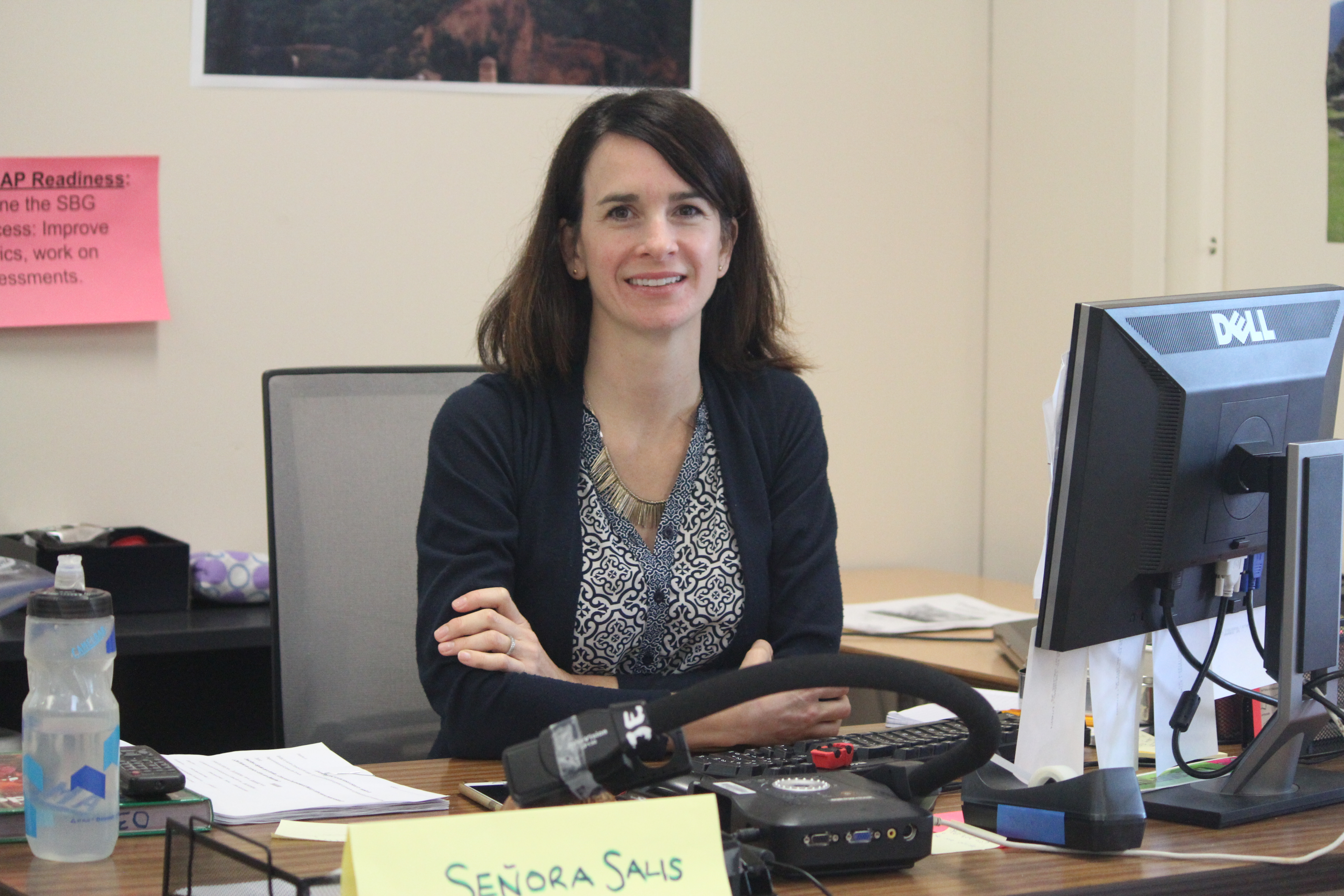
Interviews by Victoria Fong and Ashley Tsang
Photos by Dhruv Singhania
Amelia Salis — Spanish
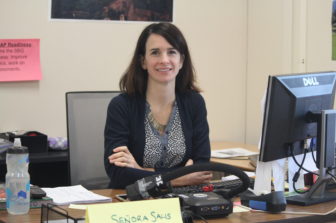
How did you know you wanted to be a teacher?
When I went to Aragon, I always knew that I wanted to be a teacher. I started out wanting to be an elementary school teacher. Then the older I got, the older the grades got … Then I realized I enjoyed the high school years the best. I love that they’re about to enter the world, the real world, adulthood. We’re like the last point of contact before they become [adults]. I think they’re impressionable. I like that we can make the adult connection.
Do you have any funny teaching stories?
I started teaching at 22. I was young. I was four years older than my students. That was a little awkward. I think that I was too young and did not have enough life experience to actually be a teacher. I felt like these are my peers and I’m teaching my peers. It was an odd juxtaposition.
How did you meet your husband?
My husband went to Aragon as well. My husband graduated the year before me. We met through the Greek community because we’re both Greek. We went to prom together and we dated for a month or two. Then we reconnected later in life. It’s very abnormal.
Do you have a fun fact about yourself?
I don’t care how food tastes, I just want it to be healthy.
Denise Ivelich — English
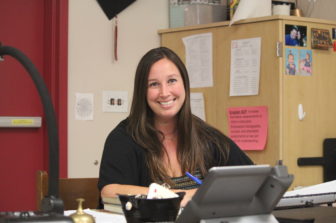
What’s your favorite part about teaching English?
A lot of the time literature lends itself to discussing themes and we talk about characters and we discuss their humanity. It’s always cool to have students see a reflection of themselves in a character. We’re reading “Macbeth” but what we’re really talking about here is greediness and power and persuasion and the definition of masculinity.
Do you have any favorite teaching moments?
I taught in Palo Alto for eight years at Palo Alto High School. James Franco went to Paly, so he came back to the campus all the time … This one particular day, the teacher next door, who was in communication with James Franco, said “Get ready. He’s coming to watch announcements in your classroom in about five minutes.” I freaked out and I stopped the class, fixed my hair, went to put on some lipstick. Why? I don’t know. I told the kids to make me look good. Right at that moment, a freshman came up to me and she said, “Oh, I don’t feel good.” … I said, “Get out,” like she was going to throw up on me. She ran out and threw up in front of the door. Then in rolls James Franco in his golf cart, right over the vomit. I don’t think he knew that. This all happened in the span of two minutes. Then James Franco comes in and I’m hiding in the corner.
Michael Wu — Science
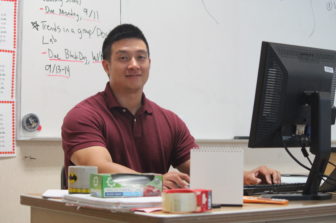
How do you convey the experiences you learned as a football player at Aragon to your students now?
The coaches … I appreciated the most were tough on me. It’s tough love…the coaches who pointed out my flaws and helped me correct them, those are the coaches who I appreciate and that’s definitely the coach I try to become. I don’t think we do any favors by giving each other false compliments for the sake of compliments. The way I coach my players, I’m honest with them, I’m direct with them, and not because I’m against sugar coating things, but I believe that being direct is the best way to communicate and part
of growing up is learning how to deal with constructive criticism. Of course, if they’re really down, I’ll bring them back up, but I’ll definitely show that tough love the coaches showed me, which I believe helped me overcome adversities in my life.
What is your favorite book?
I really like the Harry Potter series. My favorite character is, I would say, Sirius Black. The whole idea of sacrifice for someone you care about is very commendable. He played the bad guy for a very long time for the good of someone else. That kind of trait is rare. It’s a little idealistic, unrealistic. As a teacher, I know how much my teachers and coaches sacrificed for me and I want to give that back.
Leslie Yeung — Social Science
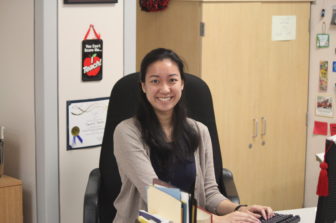
Why did you choose Aragon?
What really set it apart here was Pat Kurtz, Ron Berggren, [and] Carlo Corti, who is the department head They asked really interesting questions about collaboration, about what it’s like to work on a team. I told them the first thing I wanted to do was bring greater voices of color here in history because you don’t get a lot of that at all.
What made you want to become a teacher?
I didn’t think I was going to be a teacher when I was growing up because around the time when I graduated from high school … teaching was not an option … Once I actually got to the real adult world and working in corporate settings, I hated it. I live in a place where people do live in poverty, where there are drive-by shootings, huge economic disparities … I wanted to become a teacher to address that equity issue.
Marie Rose Escoto — Spanish
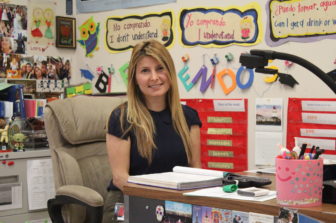
Can you tell me a little bit about yourself?
I was born in Lebanon and grew up in Brazil. I speak six languages fluently: Arabic, Portuguese, Spanish, French, English, Italian.
Why did you want to move here?
I have an [identical] twin sister … and her dream was to come to California. I didn’t care much, but I wanted to be with her. She’s my best friend. We applied to … USC, UCLA and USF. I got accepted to USC and UCLA. She didn’t, but she got accepted to USF, so we decided to come together because I wanted to be with her.
What was it like transitioning from high school in Brazil to college here?
It was an amazing experience and I learned a lot. It was difficult for me because I didn’t speak English that well. I remember my professor in class would say a joke and I wouldn’t understand, but everyone around me would be laughing. I remember … six [months] later, he said a joke that I understood and I laughed with everyone else. I was so happy I understood. I felt very welcomed and it was a very positive experience — I felt embraced and very loved.
Check out Part I of the new staffulty profiles here! And Part III here!
Correction — Sept. 26, 2017: A previous version of Escoto’s Q&A stated that she understood a joke six years later, when it is actually six months later.



